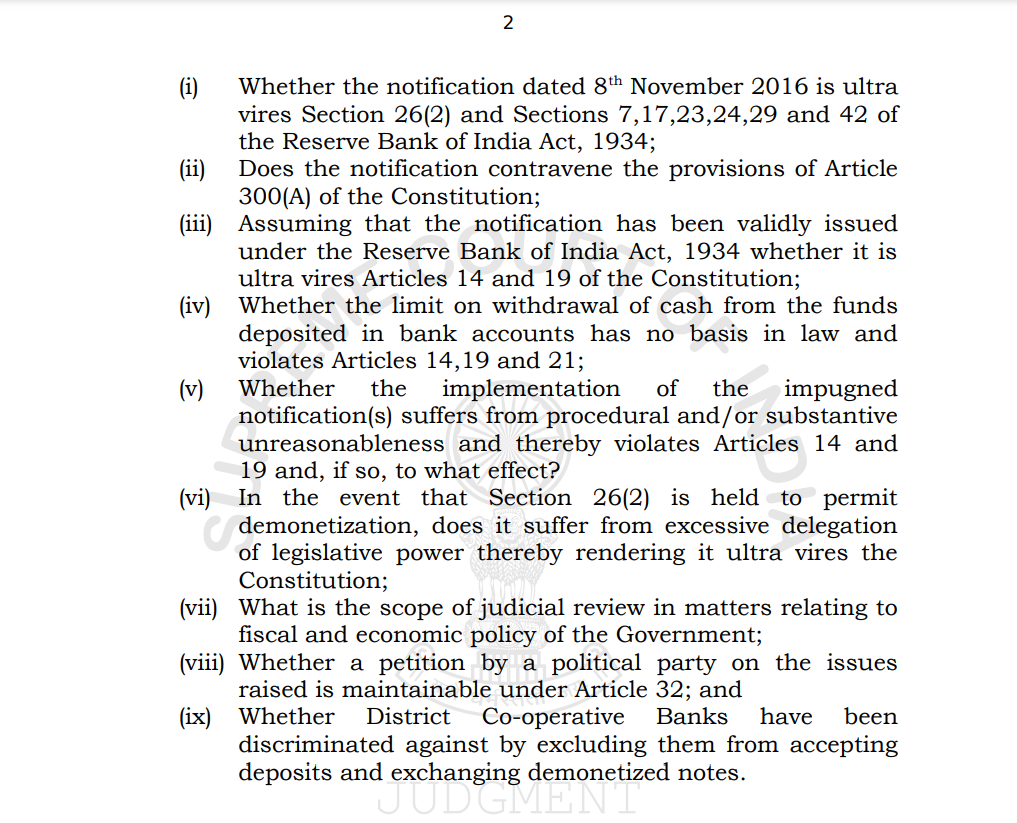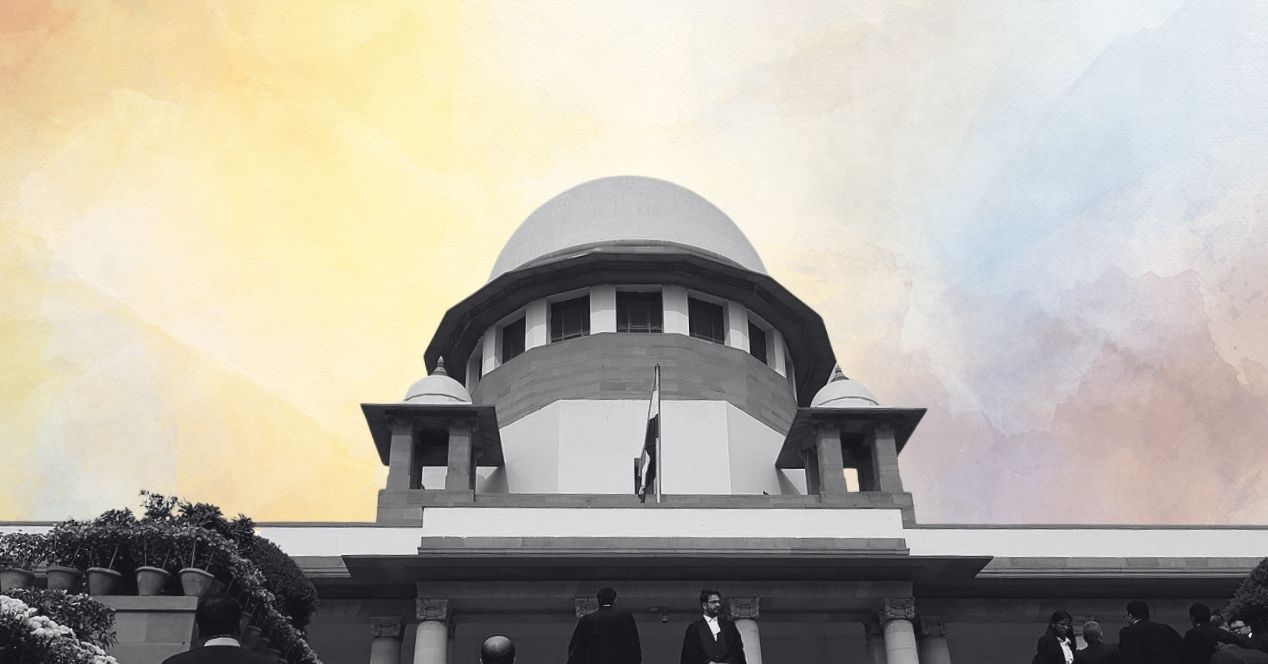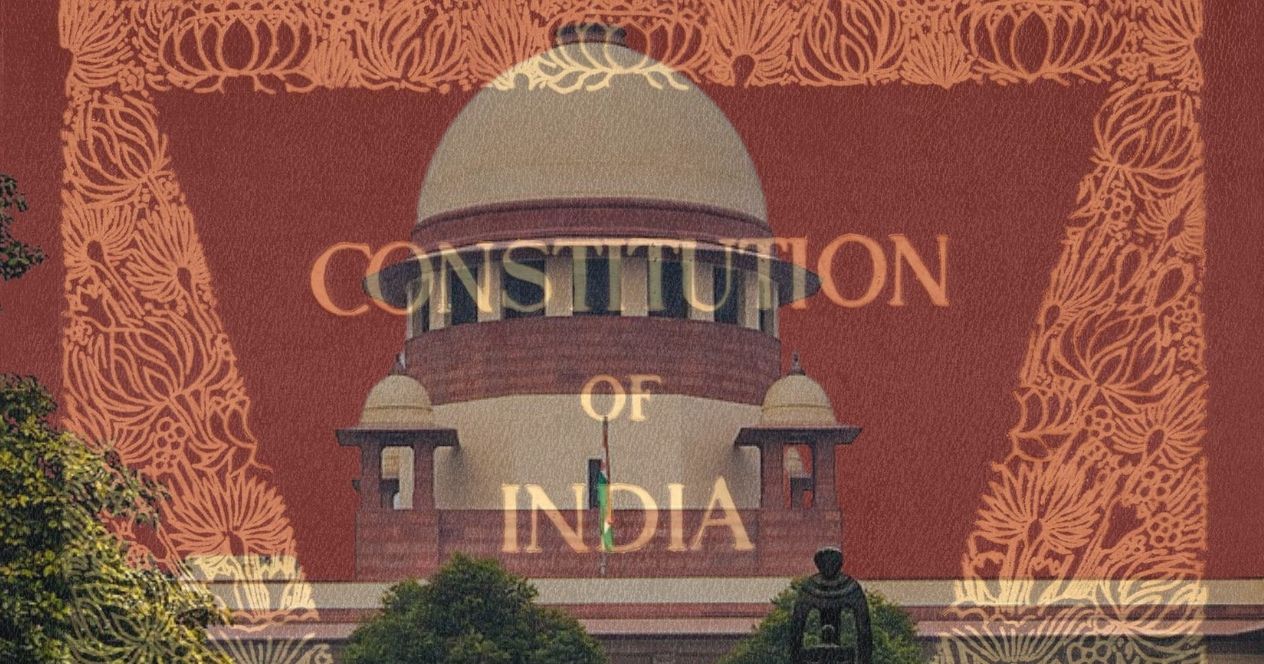Analysis
Demonetisation, MLAs’ Rights and Immunity and Criminal Procedure Before Fourth Constitution Bench
Two out three listed cases before Justice Nazeer’s Bench may now be infructuous.
A fourth Constitution Bench assembled at the Supreme Court today, scheduling hearings on five key cases—demonetisation, the limits to public officials’ right to free speech, bribery and corruption charges against MLAs and criminal procedure. Justices S.A. Nazeer, B.R. Gavai, A.S. Bopanna, V. Ramasubramnian and B.V. Nagarathna will hear challenges to demonetisation on October 12th, and the rest on November 15th.
Three of the five cases before the Bench are over six years old. The Bench was concerned today that some of them have become outdated or unnecessary to adjudicate in the years they remained pending.
Demonetisation: Justice Nazeer asks ‘Does The Issue Survive Anymore?’
58 petitions challenging the Union government’s demonetisation of Rs. 500 and 100 currency notes have been pending at the Supreme Court since November 2016. Notably, the Supreme Court transferred challenges to demonetisation pending before various High Courts to itself in December 2016. The matter was referred to a Constitution Bench in the same month, but no hearings took place until today. In the meantime, the Union has successfully removed old Rs. 500 and 100 notes from circulation, replacing them with new currency.
At the outset of today’s hearing, Justice Nazeer asked whether any issue remains in this case. Citizens challenging the policy replied that important questions on the lawful procedure to implement financial policy were referred to the Constitution Bench. (See image below). The High Courts were barred from deciding these questions as well.

Solicitor General Tushar Mehta, representing the Union government, argued that the petitioners’ concerns of economic hardship no longer applied. What remained was an ‘academic’ discussion on the Union’s powers to regulate financial policy. Justice Nazeer asked whether 5 Judges of the Supreme Court should spend days on a merely academic issue at a time when pendency is soaring.
The Bench agreed to hear the case on October 12th. Before final arguments can commence, the petitioners will have to convince the Court that a legal question worth answering survives even after the Court left the case pending for six years.
Freedom of Speech of Public Officials: Can Court Prescribe Limits Beyond the Constitution?
Samajwadi party MLA Azam Khan made comments dismissing the Bulandshahar rape incident as a ‘political conspiracy’ in 2016. The survivors came to the Supreme Court demanding action against the MLA. On Order from the Court, Mr. Khan eventually issued an apology for his statements. A 3-Judge Bench, however, referred the matter to a Constitution Bench in April 2017 to consider if any additional limits must be placed on the right to free speech of public officials.
Today, the Bench expressed two concerns about the case. Justice Nazeer stated that it will be difficult for the Court to devise a straight jacket formula for all public officials—the limits on free speech must be decided based on the facts of every individual case. Justice Nagarathna pointed out that Article 19 prescribes limits on free speech already. Can the Court prescribe more limits beyond the Constitutional scheme? Solicitor General Tushar Mehta, appearing for the Union government, echoed these concerns.
Senior Advocate Kaleeswaram Raj suggested that the limits of free speech must be different for public officials than it is for ordinary citizens. He stated that he had prepared a list of suggestions, including a self-regulating system, through which the Court can impose constitutional limits on public officials without breaching constitutional values. Mr. K. Raj’s petition cites the example of the British ‘Ministerial Code’ (2016). This Code requires Ministers to maintain government policy in their public statements, and refrain from making public comments on issues outside their ministerial responsibility. You can access Mr. Raj’s petition here.
The Court will hear this case next on November 16th. It will hear three other cases as well. In the first, it will consider if Article 194(2) provides MLAs immunity from arrest in bribery cases. In the second, the Court will decide the limits of the Judiciary’s powers to summon a fresh suspect of a crime along with the main accused. In the third case, the Court will consider the legality of inferring guilt of a public servant under the Prevention of Corruption Act (1988) when there is a lack of evidence.




